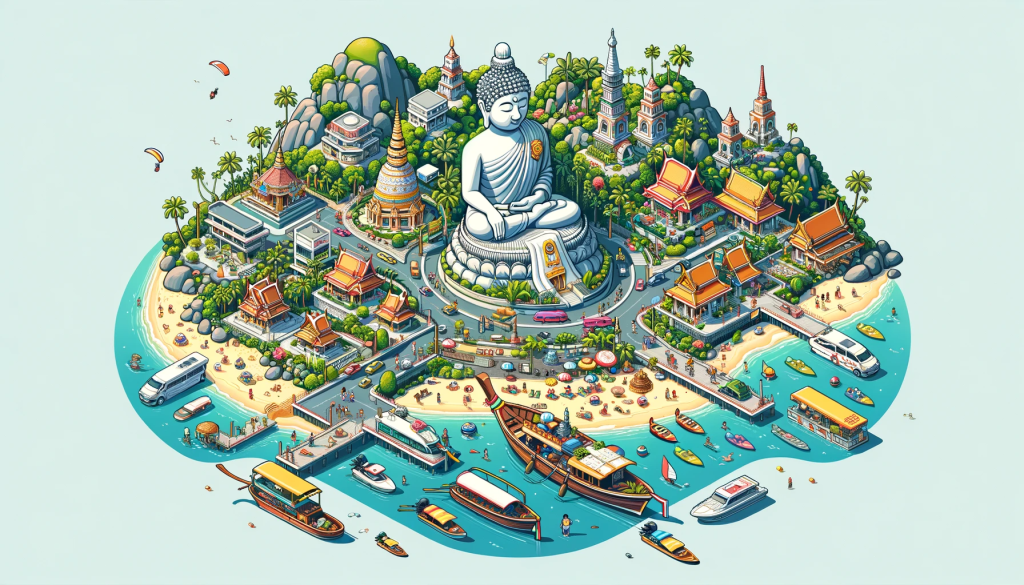
1. CENTENNIAL FLAME
The Centennial Flame, located on Parliament Hill, is an eternal flame that symbolizes Canada‘s unity and the country’s centennial celebration. It has been continuously burning since 1966, making it a significant historical and cultural landmark in Ottawa.
This iconic monument represents the diverse regions of Canada through its water features surrounding the central flame. The flowing water from these regions signifies their contribution to the development and growth of the nation.
Visitors can observe plaques around the fountain that represent each province and territory along with their respective floral emblems. This provides a unique opportunity for people to learn about Canadian geography and history through tours in a visually engaging manner.
The Centennial Flame also serves as an excellent backdrop for photography enthusiasts, offering stunning views during both day and night. It is often used as a gathering place for people at various events or simply as a spot for relaxation while taking in the scenic beauty of Parliament Hill.
2. CHANGING OF THE GUARD
The Changing of the Guard is a traditional ceremony that takes place on Parliament Hill in Ottawa during the summer months. This impressive military parade showcases Canada’s rich history and heritage.
Visitors can witness this grand event as members of the Governor General’s Foot Guards, accompanied by a regimental band, march from Cartier Square Drill Hall to Parliament Hill. The precision and discipline displayed during the ceremony are truly remarkable.
This event provides an opportunity for both locals and tourists to experience a unique aspect of Canadian culture while taking in stunning views of Parliament Hill. It also offers insight into Canada’s military traditions and their role in safeguarding the nation’s values.
For those interested in history or military customs, attending the Changing of the Guard is a must-do activity when visiting Ottawa. It allows visitors to appreciate not only the ceremonial aspects but also gain an understanding of Canada’s commitment to honor its past and present through such events.
3. NORTHERN LIGHTS
The dazzling light show at Parliament Hill is a must-see when visiting Ottawa. The captivating sound and light display depicts Canada’s rich history and culture, providing an immersive experience for visitors.
During the summer months, from July to September, Northern Lights: Sound and Light Show takes place on Parliament Hill. This free bilingual show uses the Centre Block as a giant canvas to narrate the story of Canada through stunning visual effects, music, and narration.
The display showcases pivotal moments in Canadian history, including Confederation, cultural diversity, and natural wonders like the Northern Lights themselves. It’s a unique way to learn about Canada while being entertained by this beautiful spectacle.
This event draws crowds of locals and tourists alike each year due to its engaging nature and educational value. Visitors can witness how technology has been used creatively to bring history alive in a modern setting.
For those seeking an evening activity that combines entertainment with learning about Canadian heritage, attending the Northern Lights show at Parliament Hill is highly recommended.
4. BOAT CRUISE ON THE OTTAWA RIVER
Boat cruises on the Ottawa River offer a unique perspective of the city, providing breathtaking views of Ottawa’s iconic landmarks from the water. It’s an excellent way to relax and take in the beauty of the city while enjoying a leisurely trip along the river.
Scenic Views
Cruising on the Ottawa River offers unparalleled vistas of Parliament Hill, Rideau Falls, and other notable attractions. The picturesque scenery creates an unforgettable experience for travelers seeking a different angle to explore Ottawa’s beauty.
Relaxing Exploration
For those looking for a more laid-back approach to sightseeing, boat cruises provide an ideal option. It allows visitors to unwind while still taking in all that Ottawa has to offer.
Various Cruise Options
There are various cruise options available, catering to different preferences and schedules. From daytime sightseeing trips to evening dinner cruises with live entertainment, there is something for everyone looking to embark on this memorable journey.
5. BYWARD MARKET
The ByWard Market is a vibrant hub in Ottawa, offering an array of experiences for locals and tourists alike.
- With over 600 businesses including food shops, boutiques, restaurants, and more, the market is a bustling epicenter of activity.
- Visitors can explore diverse vendors and artisans showcasing their crafts, from handmade jewelry to unique artwork.
- The market boasts an abundance of fresh produce and local goods, allowing visitors to immerse themselves in the city’s culture while supporting local businesses. -ByWard Market does not disappoint. From cozy cafes to fine dining establishments serving various cuisines, there’s something to satisfy every palate.
- In addition to shopping and dining opportunities, the area also offers entertainment options such as live music performances and street performers.
ByWard Market stands as a testament to Ottawa’s rich cultural tapestry. It encapsulates the essence of the city—bridging together communities through its diverse offerings while serving as a symbol of pride for local companies and artisans.
6. SPARKS STREET MALL
Sparks Street Mall is a bustling pedestrian mall in Ottawa, offering an array of boutiques, shops, and restaurants. The historic charm of the area combined with its vibrant atmosphere makes it a must-visit for travelers seeking a unique shopping and dining experience.
Throughout the year, Sparks Street Mall hosts various events and festivals that add to its allure. From cultural celebrations to food festivals and live music performances, there’s always something exciting happening at this iconic location.
The boutiques at Sparks Street Mall cater to diverse tastes, offering everything from trendy fashion items to locally crafted goods. Visitors can explore the cobblestone streets while browsing through an eclectic mix of shops that showcase the rich culture and creativity of Ottawa.
With its lively ambiance and engaging events calendar, Sparks Street Mall provides not only excellent shopping opportunities but also a chance to immerse oneself in the local culture. Whether it’s enjoying a leisurely stroll or indulging in delectable cuisines at one of the many eateries lining the street, this pedestrian mall offers an authentic taste of Ottawa’s dynamic spirit.
7. RIDE ON THE RIDEAU CANAL
The Rideau Canal in Ottawa is not just any ordinary waterway; it holds the prestigious title of being a UNESCO World Heritage Site. This recognition speaks to its historical significance and exceptional cultural value.
Visitors can partake in enjoyable boat rides or opt for leisurely scenic walks along the canal, taking in the picturesque views and vibrant atmosphere that surrounds it. The canal provides an excellent opportunity for tourists to immerse themselves in Ottawa’s natural beauty while engaging in recreational activities.
During winter, the Rideau Canal undergoes a remarkable transformation into the world’s largest skating rink, stretching over 7.8 kilometers. This unique experience offers locals and tourists alike the chance to enjoy a quintessentially Canadian activity – ice skating – against an enchanting backdrop of snow-covered landscapes and historic landmarks.
This seasonal transformation attracts numerous visitors who come to revel in this extraordinary spectacle, making it one of Ottawa’s most iconic attractions year-round.
8. CANADIAN MUSEUM OF HISTORY
The Canadian Museum of History in Gatineau, just across the river from Ottawa, offers a captivating insight into Canada’s rich cultural heritage. With over 4 million artifacts and specimens, this museum boasts an impressive collection that spans centuries.
Visitors can explore exhibits ranging from Indigenous history to contemporary Canadian culture, providing a comprehensive understanding of the country’s diverse past. The Grand Hall is particularly noteworthy for its stunning architecture and iconic totem poles.
One highlight is the First Peoples Hall, which showcases indigenous art and traditions through interactive displays and multimedia presentations. The museum hosts temporary exhibitions that delve into specific aspects of Canadian history and culture.
For those interested in exploring beyond traditional exhibits, there are special events such as lectures, workshops, and performances held throughout the year. These events offer immersive experiences that bring history to life in engaging ways.
Furthermore, with its picturesque location along the Ottawa River and proximity to other attractions like Parliament Hill and ByWard Market, visitors can easily incorporate a visit to the Canadian Museum of History into their itinerary when exploring Ottawa-Gatineau.
9. GATINEAU PARK
Gatineau Park is a nature lover’s haven, boasting an array of hiking trails and breathtaking scenic lookouts that draw in outdoor enthusiasts from all around. The park offers an extensive selection of activities, including swimming, biking, and skiing during the winter months.
Visitors flock to Gatineau Park during the fall season to witness the spectacular display of vibrant foliage as the leaves change color. This natural phenomenon provides a picturesque backdrop for hikers and photographers alike.
In addition to its natural beauty, Gatineau Park also features a skating rink where visitors can enjoy gliding across the ice amidst stunning surroundings. Furthermore, there are numerous patios scattered throughout the park, providing idyllic spots for relaxation while taking in panoramic views.
Whether you’re seeking an adrenaline-pumping adventure or simply looking to unwind surrounded by nature’s splendor, Gatineau Park offers something for everyone. Its diverse range of activities and stunning landscapes make it a must-visit destination for travelers exploring Ottawa and its surrounding areas.
10. Canadian Tulip Festival
The Canadian Tulip Festival is a vibrant celebration of Ottawa’s historical connection with the Dutch Royal Family, featuring over a million tulips in bloom across the city. This event not only showcases the beauty of these flowers but also commemorates Canada’s role in providing safe haven to the Dutch royal family during World War II.
Cultural events and performances are integral parts of this festival, offering visitors a chance to immerse themselves in music, dance, and art from both Canadian and international artists. The festival culminates with mesmerizing fireworks displays that illuminate Ottawa’s night sky.
The significance of this festival extends beyond its visual appeal; it serves as an enduring symbol of international friendship and gratitude between Canada and the Netherlands. The floral spectacle draws tourists from all over the world, making it one of Ottawa’s most iconic annual events.
In recent years, attendance at the Canadian Tulip Festival has continued to grow steadily. In 2019 alone, it attracted approximately 600,000 visitors who marveled at the stunning tulip displays throughout various locations in Ottawa.
This festival provides an immersive experience for attendees by blending natural beauty with cultural festivities—a truly unique way to celebrate springtime while honoring history and international relations.
Frequently Asked Questions
Is the Canadian Tulip Festival worth visiting in Ottawa?
Absolutely! The Canadian Tulip Festival is a breathtaking display of colorful tulips, showcasing the beauty and heritage of Ottawa. With over a million tulips blooming across the city, it’s a must-see event that celebrates spring and Canada’s role in liberating the Netherlands during World War II.
What are some iconic landmarks to visit in Ottawa?
You won’t want to miss out on visiting iconic landmarks such as the Centennial Flame, Changing of the Guard ceremony, ByWard Market, and taking a boat cruise on the Ottawa River. These attractions offer unique experiences that capture both historical significance and modern vibrancy within Ottawa.
How can I explore nature while visiting Ottawa?
For nature enthusiasts, Gatineau Park offers an incredible escape into lush greenery with hiking trails, scenic lookouts, and beautiful lakes. It’s an ideal destination for outdoor activities like hiking or picnicking amidst stunning natural landscapes just minutes away from downtown Ottawa.
What unique activity can I experience at Sparks Street Mall?
Sparks Street Mall provides an exceptional pedestrian mall experience where you can immerse yourself in local culture through street performances, shopping boutiques, cozy cafes, and vibrant events. It’s a lively hub offering diverse entertainment options for visitors to enjoy throughout their stay in Ottawa.
Why should I take a boat cruise on the Rideau Canal?
A boat cruise along the historic Rideau Canal allows you to appreciate picturesque views of Parliament Hill and other prominent landmarks from a different perspective. You’ll also get to witness captivating scenery while learning about this UNESCO World Heritage Site’s fascinating history directly from knowledgeable guides aboard.



